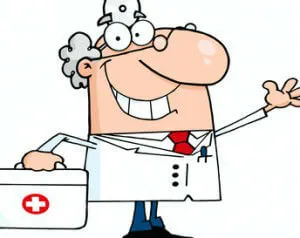“The only way to know if the screening is saving lives is by doing a randomized trial. It’s easy to forget this and assume that if technology can find more cancer, it will save more lives. Marketers exploit this assumption. Don’t fall for it.”
― H. Gilbert Welch, Overdiagnosed: Making People Sick in the Pursuit of Health
You go to the doctor for what you think is your routine wellness screening to be told that you have a borderline condition requiring more testing and possibly treatment. Panic ensues and you go because you are afraid of what might be, however, you have to wait two weeks for your test.
You miss work due to stress, you suffer from insomnia and fret until test day. In the end, your test is negative, but you begin to wonder, was it really necessary in the first place? After all, you have no family history, feel great, eat well and take care of yourself.
Could it be possible that our incessant quest for health may be making people unnecessarily sick? Dr. H. Gilbert Welch challenges standard medical practice in America that he says spends a great deal of time and money obsessively screening healthy people for potential illnesses, and how this can actually backfire and cause harm for the patient.
FACT: Diagnosis for a number of conditions such as hypertension, diabetes, osteoporosis and even cancer have ballooned over the last thirty years, however, the number of deaths from these conditions has been relatively unaffected.
Welch and co-authors Lisa Schwartz and Steven Woloshin of Dartmouth College write about the dangers of looking too closely for conditions or illnesses in healthy people and just how outrageous “testing” asymptomatic individuals has gotten. The authors state that additional tests and procedures that are costly from both a monetary and psychological perspective, as well as any treatment that follows, can actually induce stress-related sickness and cause lasting physical damage.
What is Overdiagnosing?
Overdiagnosis happens when a physician makes a diagnosis in a person who would never develop symptoms or die from the condition. It is common when our medical professionals try to diagnosis far too early, in people who are symptomless. Welsh says that this is not to say that all testing is bad and should be ruled out, for sure, some tests save lives.
However, the truth is that almost everyone has something that is abnormal, and it can be very wrong to exploit it through very expensive and painful tests which can often result in undue mental stress. Not all overdiagnosing leads to overtreatment, but it happens. Welsh begs for a more balanced approach to testing, diagnosis and ultimately treatment.
Some Truths Revealed
Welsh and his co-authors make a number of statements when it comes to the costs of overtesting, overdiagnosing and overtreating, including:
- Treating patients who are at the very mild or borderline end of a disease spectrum can be dangerous, causing more harm than good.
- The side effects of treatment for a mild or moderate condition are often worse than the actual disease, especially if they have no symptoms.
- Our overstrained medical system is further strained when we try to find sickness where there is health.
- The medical industry continues to lower “baseline” numbers and diagnosis criteria so that more people appear sick. A perfect example of this happened when the criteria used to define osteoporosis was changed. Overnight, 7 million American women became patients.
- False positive tests can cause tremendous damage, especially in conditions such as thyroid cancer that when treated without cause leaves lasting damage.
- When a patient is labelled with a “pre-existing” condition, it can lead to loss of medical insurance or skyrocketing prices.
- People never used to go to the doctor when they were healthy.
- Profit and fear of lawsuits drives much overtesting and overdiagnosing.
- Some abnormalities that are identified as cancer can be genetically programmed to never develop into anything that would bring harm to the person or even present symptoms.

Many times we may not feel that we have a choice when we are told that more testing is “required.” You must be your own health advocate and arm yourself with as much information as possible. It is at this point that you can entertain a discussion with your health practitioner, possibly seek a second option, and consider all of the pros and cons of the testing and possible ensuing treatment.
Welch encourages us to seek preventative screenings only when solid medical facts indicate it is necessity.
-The Alternative Daily
